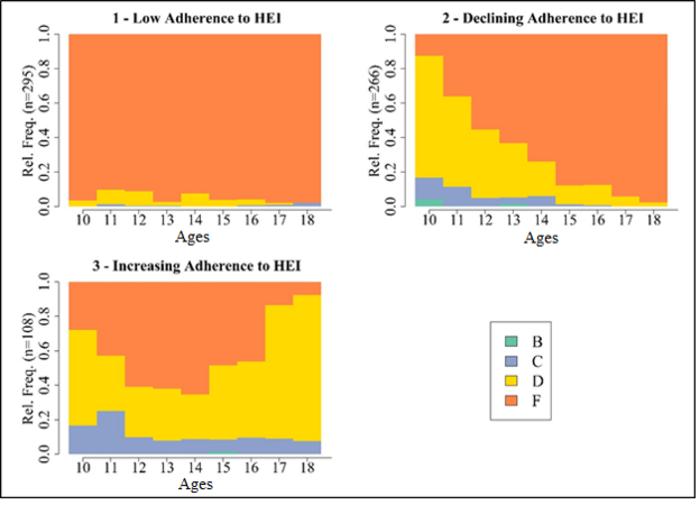A groundbreaking new study shifts the focus of childhood nutrition from mothers alone to the critical influence of fathers, revealing that a father’s dietary habits during adolescence can significantly shape their children’s eating behaviors years later. This research, emerging from a longitudinal cohort analysis, highlights the long-lasting impact of adolescent nutrition on future generations, demonstrating that young men who maintained healthier diets in their teens are more likely to foster positive eating environments for their offspring.
The study scrutinized responses from 669 adult men who retrospectively reported their adolescent dietary patterns through detailed questionnaires. Years later, these same men provided comprehensive accounts of their attitudes and feeding practices concerning their young children aged 1 to 6 years. Such a design allowed researchers to link early nutritional behaviors with contemporary parenting styles, particularly in relation to dietary modeling and monitoring children’s food intake, thereby painting a nuanced picture of intergenerational nutritional transmission.
Central to the analysis was the use of the Healthy Eating Index (HEI), a validated tool measuring diet quality on a continuum from 0 to 100. Participants’ adolescent diets were categorized into three dynamic trajectories based on HEI scores: consistently poor diet quality, declining diet quality, and improving diet quality throughout adolescence. Approximately 44% of participants fell within the consistently poor category, 40% exhibited declining quality, and 16% demonstrated improvements over time. This stratification provided a key variable in assessing how past dietary improvements correlate with current parental behaviors.
The data revealed compelling trends: those fathers who improved their diet quality during adolescence were nearly twice as likely to actively model healthy eating behaviors, such as choosing nutrient-dense foods and demonstrating balanced meals, as compared to their peers with consistently poor adolescent diets. Additionally, these fathers were significantly more vigilant in monitoring their children’s consumption of unhealthy snack foods and sweets, fostering environments conducive to healthier choices among their offspring.
Equally significant was the finding that children of fathers who had improved their adolescent diets were more likely to meet recommended daily intakes of fruits and vegetables. This aligns with broader public health goals targeting childhood nutrition as a critical factor in preventing obesity and diet-related chronic diseases. It suggests that early life interventions targeting adolescent boys’ diet could reverberate through generations, influencing familial eating patterns and childhood health outcomes.
The research underscores the concept of dietary habit transmission within family units, not merely through direct nutrition education but also by subtle modeling and reinforcement behaviors exhibited by parents. Fathers with healthier adolescent diets appear to internalize positive food values that manifest in their parenting styles, providing children with practical examples and structured guidance on healthy eating, which are essential for establishing lifelong nutritious habits.
Dr. Mariane H. De Oliveira, the lead investigator and a postdoctoral researcher at Boston College, emphasized the importance of these findings: “Our work challenges the traditional maternal-centric approach to childhood nutrition and indicates that paternal influences, particularly rooted in their own adolescent experiences, play a pivotal role in shaping children’s dietary behaviors. This represents a profound opportunity to address nutritional disparities by including fathers in intervention strategies.”
This study was part of the Fathers & Family sub-cohort of the larger Growing Up Today Study and leveraged rich, longitudinal data reflecting dietary patterns and familial factors. However, researchers acknowledged demographic limitations, noting the majority of participants identified as white and possessed higher educational attainment, with over 80% holding bachelor’s degrees or above. This homogeneity potentially restricts the generalizability of findings across more diverse populations, and future research is needed to explore these dynamics in varied demographic contexts.
Interestingly, the study also examined the influence of family meal frequency during adolescence on later diet quality but found no significant correlation, suggesting that eating regular family meals alone may not be sufficient to foster enduring healthy dietary behaviors. The study notably did not assess maternal dietary influences, leaving an important dimension of family nutrition unexplored and paving the way for comprehensive future studies investigating parental dyads.
As childhood obesity rates and diet-related health challenges rise globally, this research holds significant implications for public health policies and nutritional education programs. By identifying adolescence as a critical window for establishing positive dietary patterns, especially among future fathers, stakeholders can design targeted interventions that capitalize on this developmental stage to improve health trajectories not only for individuals but also for their future children.
The upcoming presentation of these findings at NUTRITION 2025, the American Society for Nutrition’s flagship conference, highlights the growing recognition of paternal roles in nutritional science. Dr. De Oliveira’s session will delve deeper into these mechanisms during the Breastfeeding, Nutrition, and Early Life Health segment, emphasizing the importance of interdisciplinary approaches to tackle complex nutritional challenges at familial and population levels.
In sum, this research fundamentally expands our understanding of the familial transmission of dietary habits, positioning adolescent dietary improvements as a critical determinant of effective fathering practices in nutrition. It challenges nutrition professionals to broaden their focus, integrating fathers more deliberately in strategies aimed at improving childhood nutrition, and underscores the value of investing in adolescent health as a foundation for future generational wellbeing.
Subject of Research: Influence of adolescent diet quality in fathers on their children’s eating habits and dietary outcomes.
Article Title: Father’s Adolescent Diet Quality Predicts Healthy Dietary Practices in Their Young Children
News Publication Date: Not specified; research to be presented at NUTRITION 2025 (May 31–June 3, 2025).
Web References:
Image Credits: Image created by Mariane De Oliveira
Keywords: Fathers, Adolescents, Diet Quality, Healthy Eating Index, Child Nutrition, Dietary Modeling, Fruit and Vegetable Consumption, Intergenerational Nutrition, Nutritional Epidemiology, Healthy Eating Behaviors, Dietary Monitoring, Childhood Obesity Prevention




